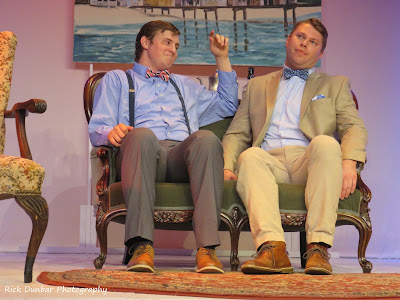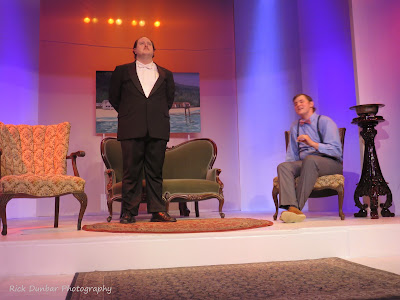Evita the musical undeniably bears the mark of English composer Andrew Lloyd Weber with lyrics by Tim Rice. The stage production opened on June 21, 1978 at the Prince Edward Theatre in London with Elaine Paige in the title role and Joss Ackland as her formidable Juan Peron and then at the Broadway Theatre on September 25, 1979, where it had 1,567 performances. Harold Price was the director. It won an impressive seven 1980 Tony Awards including Best Book, Best Score and Best Musical of the year. In 1981, the Evita cast recording was awarded a Grammy Award.
Set in Buenos Aires between 1934-1952, the musical follows Eva Duarte on her journey from a poor, fatherless home, to an ambitious actress, to becoming the most powerful woman in Latin America. She left a trail of tears along the way, from dumping singer-songwriter Magaldi to giving Colonel Juan Peron's mistress the boot. In the meantime, Juan Peron was leaving a trail of bodies on his rise to power as depicted in a game of musical chairs, ending in an opponent's demise. Eva organizes rallies for the impoverished and gives them hope for a better future while Peron and his allies plot to dispose of anyone who stands in their way. For a short time, Argentina was hers, and the rest is history.
Director David McLaughlin, assisted by Chrissy Eliason, thoroughly prepared his well-chosen group of local actors for the task of winning over the audience. The large cast's finely tuned choreographed movements flowed as one, and when they sang all together, their vocals were harmonious and powerful.
Carlos Nieto was a dominant presence on the set as the antagonist Che, who seems to be a spokesman of the people. The character's attire was reminiscent of a Latin American revolutionary, and Carlos sings his words with the passion of a non-conforming rebel. He addressed the audience like they were a part of the play. His direct eye contact was engaging.Elissa Horrell elegantly filled the role of the musical's protagonist, Eva, and shined in the play's signature piece "Don't Cry for Me Argentina." Elissa was paired with Steve Tarnow as the ambitious Juan Peron. Steve had command of his crisp vocals and strutted Peron's military-like demeanor.
Joshua Broome demonstrated his vocal abilities as Magaldi in his rendition of "On This Night of a Thousand Stars." As Peron's mistress, Olivia Gainey once again showed acting and singing are second nature for her as she performed "Another Suitcase in Another Hall."
The main characters did double duty in minor roles with talented supporting cast Sophie Marie Stanley, Savannah Cash, Andrea Catangay, Rusty Cooler, Michael James Daly, Anna Lin, Kenneth Mueller, Latanya Mueller, Dylan Rowe, Joseph Spiotta, and Robert Venne. Lighting handled by Ernie Eliason and set art by Robert Venne.
South of Broadway Theatre is a small venue and seating is very intimate. If you sit in the front row, you can literally reach out and touch the actors. In addition, you may experience temporary whiplash following the action from left to right. There were a couple of glitches with the sound, and a few times the spotlight was slightly off target, likely due to the quickly changing positions of the actors. However, I am sure with these minor mishaps addressed, Evita will be near perfect.
David McLaughlin's Evita is entertaining and compelling. The opening scene is dark and spellbinding, elevating your expectations for what will follow, and it does not let you down. Follow the progression of the characters closely, especially Eva, there are a few symbolisms for you to catch. If you are a fan of live theater, Evita is well worth your time to check out.







































